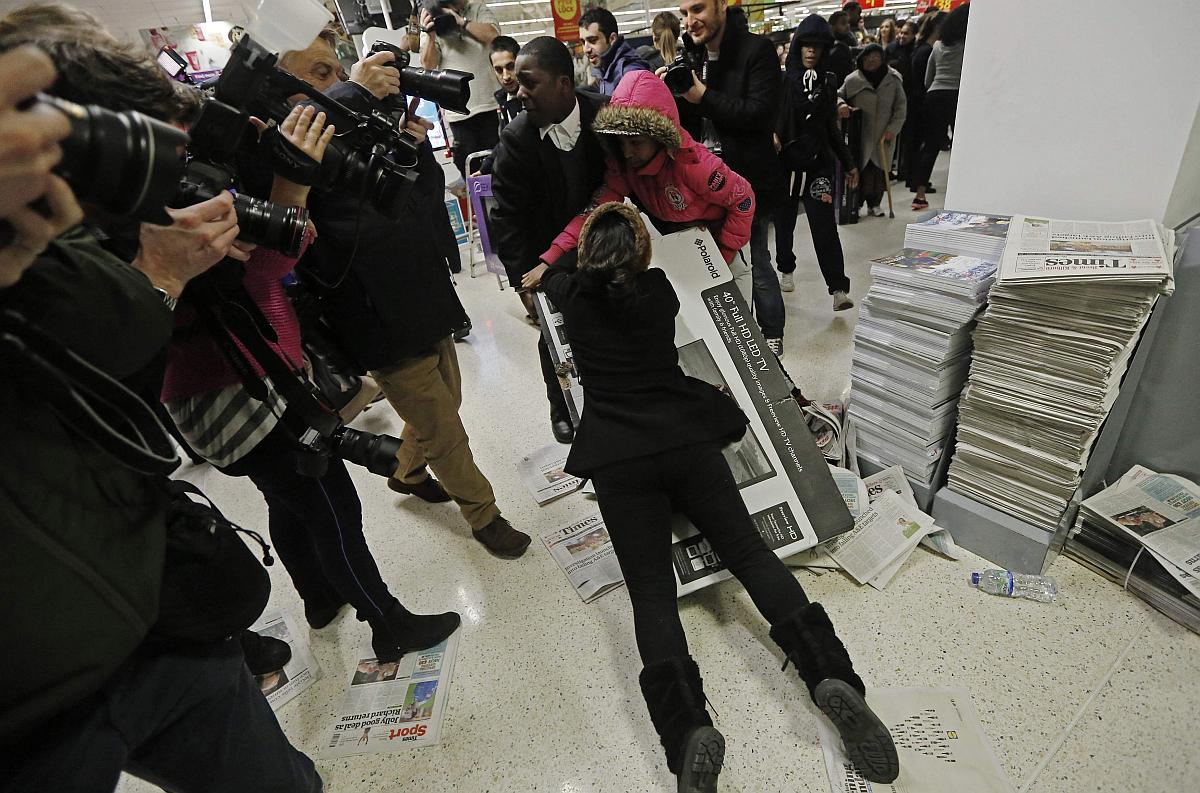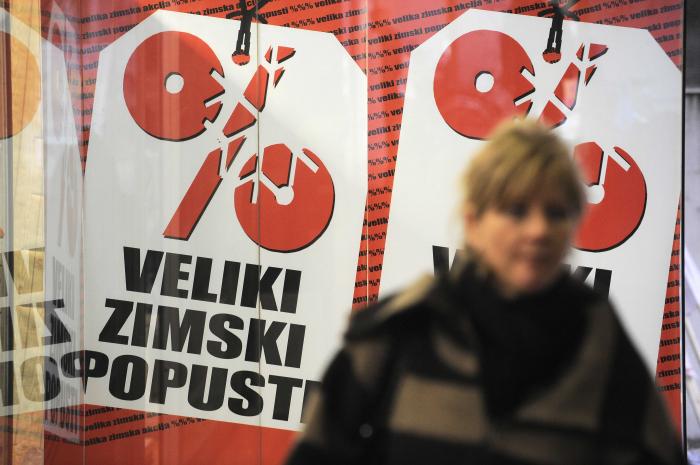New competitors are opening a new field - low-price products which our quality-oriented companies have never known; lower price as a rule means lower quality. But as many consumers fell for it, it is simply impossible for providers to ignore this new segment.

No, consumers just don't consider the difference between an original and a copy big enough. Often the higher price for a renowned trade mark is not justified. It is not that consumers have become insatiable; they just stopped acting like sheep, and are becoming more and more demanding. In China a new segment of new electronic brands is emerging, like Xiomi, One Plus One, SoundMagic, offering top quality products for a normal price. Today not only cheap stuff is being produced in China.
Due to economic recession in our country Slovenia in the last years became one of the EU countries with the largest drop in retail sail. Some owners of small shops have noticed an interesting fact - every time the government team announced new austerity measures, or introduced new taxes, the number of customers in their shops declined. Most of the buyers became more prudent in spending their money. The economic crisis influenced the largest chains of shops, causing shift in their routine; they became much more generous, and are luring buyers into their shopping centres with large discounts.
Among the novelties the so-called Black Friday was introduced by a number of Slovenian traders, a traditional opening of the pre-Christmas shopping spree in the USA, at which occasion a number of discounts is offered to buyers. Black Friday primarily took hold in the wealthier West European countries. In Great Britain buyers even fought among themselves for 10% cheaper TV sets or coffee machines, some were arrested or had to seek medical help for injuries obtained during the shopping battle. We haven't faced such shopping euphoria (yet).
Is a certain part of population really obsessed by consumerism? Zenel Batagelj from Valicon marketing consulting and research company, who is dedicating himself also to research in the field of trade, claims it is not so. "It is by no means an obsession, it is the direction the development of consumerism is taking. At least for certain categories of products and services the reality of 'real-time bidding' is very close."
He believes that new shopping trends are coming from all sides, usually from the USA into Great Britain and Germany, and with a delay are reaching our country as well. "The Black and Cyber Fridays and Mondays are an efficient answer to change in consumers' habits; higher sensitivity to prices, increase in segment of consumers searching the internet for more favourable purchases and shopping in general. On the other hand there are producers and traders who need to get rid of merchandise on stock. Black Friday is simply an answer to the new situation on the market," he claims.
Discount stores are not a hit yet
What kind of buyers are Slovenians? Are there any notable differences between the Slovenian regions, considering the fact that some parts of Slovenia are known as more frugal? Batagelj disagrees, claiming that those are stereotypes: "Consumers of today are global, and if differences between nations are diminishing, that is even more true of regional peculiarities. Presently the behaviour of consumers in our country is much more influenced by the level of development of the region, and historical connection with regions across the border. The Štajerska region was strongly affected by the crisis, and their ties to the Austrian Koroška. They have been familiar with Hofer for a long time, and therefore have a different relation to it than the others."
The first discount stores of the Hofer/Aldi or Lidl type are still present in the mind of Slovenian consumers. Yet discount stores are successful in other countries as well. For years now traditional chain stores have been noticing the decrease of sale on account of discount stores also in those countries where the purchasing power is much higher than in Slovenia. Batagelj warns that discount stores in our country are still far from the success they have e.g. in Germany. "What's their secret? Their principle is very simple. Perception of a low price, and quality for price on the one hand, and less varied offer, lesser renowned brands, and mostly store's own brands, quite often bought globally on the other hand. The combined effect results in reduced costs, which allow lower prices. And when you add the proverbial German efficiency…"
How successful are Slovenians as salesmen?
Proverbially efficient Germans have no troubles with their reputation on the world markets. And what about Slovenians? What kind of salesman, and traders are we considered? Is it true that we have difficulty parting with our own products, and in selling our knowledge, and ourselves as individuals?
"Slovenians are proverbially modest, private, they would prefer to live well in in their own small homeland. But things are changing; the young are looking for an alternative, they have ideas, and know how to sell themselves. When they can’t find their future here, they look for it elsewhere. WE Slovenians need a strong push to get going. But once we start moving, we are capable of performing miracles," Batagelj explains.
The new global sales guidelines are more and more present in Slovenia. But, are Slovenian traders ready for them? Batagelj warns that it would be wrong to copy consumers' habits of large markets. Long-term competitive advantages should be identified, and concepts adapted to market development, and existing competition should be found. Education of Slovenian salespersons for new challenges in sale differs between companies: "It is my impression that the extraverted sale is only starting to develop. A new wave of sale oriented Slovenian companies of global thinking is emerging," Batagelj says, and adds that no other options exist.
New competitors are opening a new field - low-price products which our quality-oriented companies have never known; lower price as a rule means lower quality. But as many consumers fell for it, it is simply impossible for providers to ignore this new segment.
No, consumers just don't consider the difference between an original and a copy big enough. Often the higher price for a renowned trade mark is not justified. It is not that consumers have become insatiable; they just stopped acting like sheep, and are becoming more and more demanding. In China a new segment of new electronic brands is emerging, like Xiomi, One Plus One, SoundMagic, offering top quality products for a normal price. Today not only cheap stuff is being produced in China.


































































